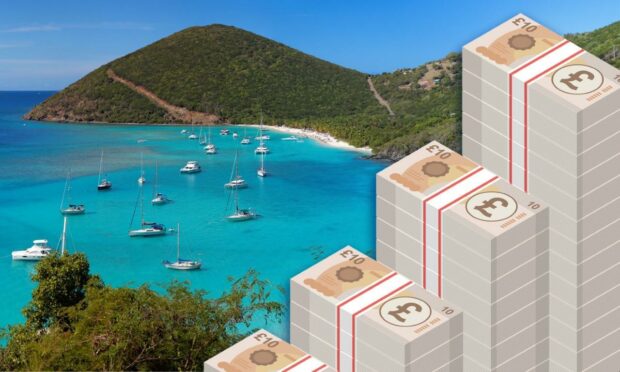Companies based in major overseas tax havens have more than doubled the number of land and property titles they own in Scotland in just four years.
New figures have revealed a huge growth in ownership among firms registered in places such as Jersey, Isle of Man, the British Virgin Islands, the Bahamas and Cayman Islands.
Scottish Greens MSP Ariane Burgess said the data from Registers of Scotland was “very worrying”.
She said she was hoping for further government action to deliver a shift in power away from “murky offshore accounts” to Scottish communities.
Former Scottish Liberal Democrat leader Willie Rennie said it was time for both the UK and Holyrood governments to “clamp down on opaque and elusive ownership structures”.
There were 1.86 million registered titles in Scotland’s Land Register on December 31, 2021.
Of those, 93.1% belonged to people or businesses with addresses in Scotland, while 5.2% were in the rest of the UK and 1.5% were registered abroad.
Only six of the nation’s 32 local authority areas had more than 1,000 titles owned overseas.
They were Edinburgh with 4,962, Glasgow with 3,625, Fife with 1,484, Aberdeen City with 1,288, Highland with 1,280 and South Lanarkshire with 1,028.
The majority of these titles, 84%, were owned by individuals, with the top locations being the USA, Hong Kong, the United Arab Emirates, Australia and Ireland.
However, 11.6% of the properties owned overseas were registered to limited companies.
Of these, the highest numbers were in Jersey, Isle of Man, the British Virgin Islands, Guernsey, Luxembourg, the Bahamas, USA, Netherlands, Gibraltar, Cayman Islands, Hong Kong and Seychelles.
The locations all feature in the corporate tax haven index, produced by the Tax Justice Network.
The British Virgin Islands, Cayman Islands, Netherlands, Luxembourg, Hong Kong and Jersey are all in its “top 10” of places most involved in helping companies under pay corporation tax.
The Registers of Scotland report said that 60% of all Scottish titles owned or leased by companies from outwith the UK were accounted for by the Isle of Man, Jersey, British Virgin Islands and Guernsey.
When compared to figures for the end of 2017, the number of titles owned by companies in the top five locations had more than doubled.
The number in Jersey had increased from 298 to 594, in the Isle of Man it was up from 214 to 583, and in the British Virgin Islands the number had soared from 258 to 414.
Companies based in Guernsey more than doubled their titles in the period, from 154 to 347, while the number of properties owned in Luxembourg increased from 111 to 178.
Huge rises were also recorded in other tax havens, such as the Bahamas, where the number increased from 52 to 117 in four years, and the Cayman Islands, where there was a rise from 37 to 68.
‘We need to do so much more’
Ms Burgess, a Highlands and Islands MSP, said: “It is very worrying that more and more land in Scotland is owned by companies with offshore accounts.
“Apart from the obvious issues around tax avoidance and a lack of transparency, this is about power and who controls what happens in these places.
“The Scottish Parliament was established with the promise to address the scale and concentration of landownership in Scotland and although there have been some good work done, including the establishment of the Scottish Land Commission, these figures provide a stark reminder that we need to do so much more.
“That’s why further land reform is part of the Bute House Agreement which brought Greens into government.
“I hope we can shift that land-based power away from murky offshore accounts to the communities that live in these places.”
Mr Rennie, Scottish Lib Dem economy spokesman, said: “It’s ridiculous that so much Scottish property ownership can be traced to secretive overseas territories.
“It’s hard to see what benefit there is to the people of this country in allowing properties to be registered to these opaque overseas tax havens.
“They are simply a way to rig the rules of the game against ordinary people who pay their way.
“It’s time for both of Scotland’s governments to clamp down on opaque and elusive ownership structures.”



